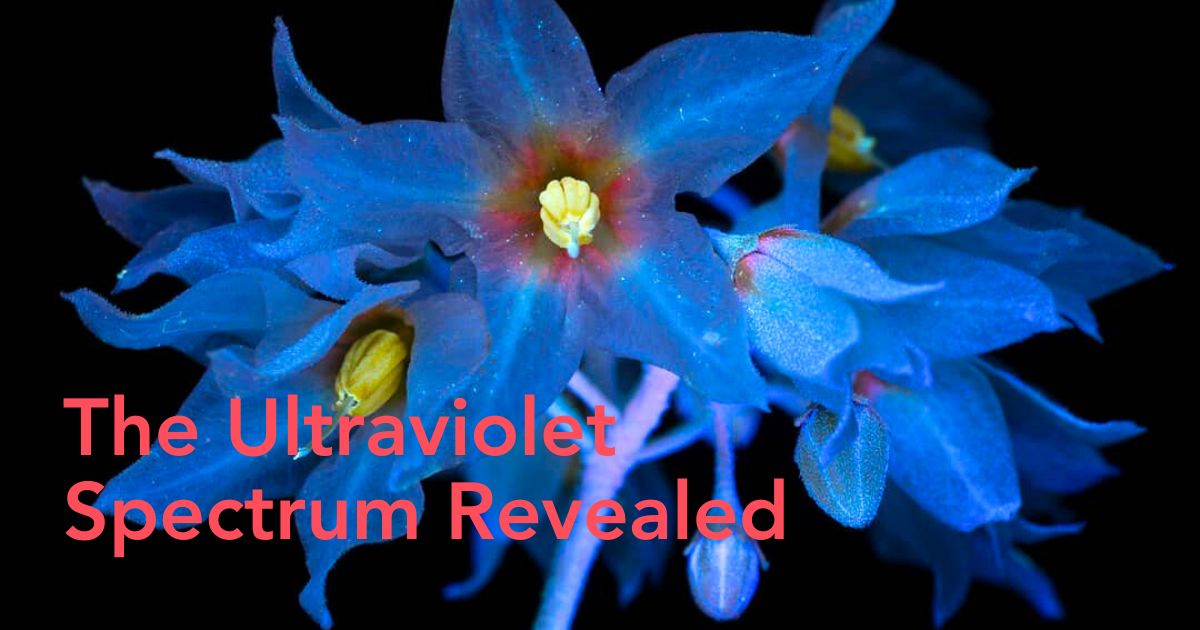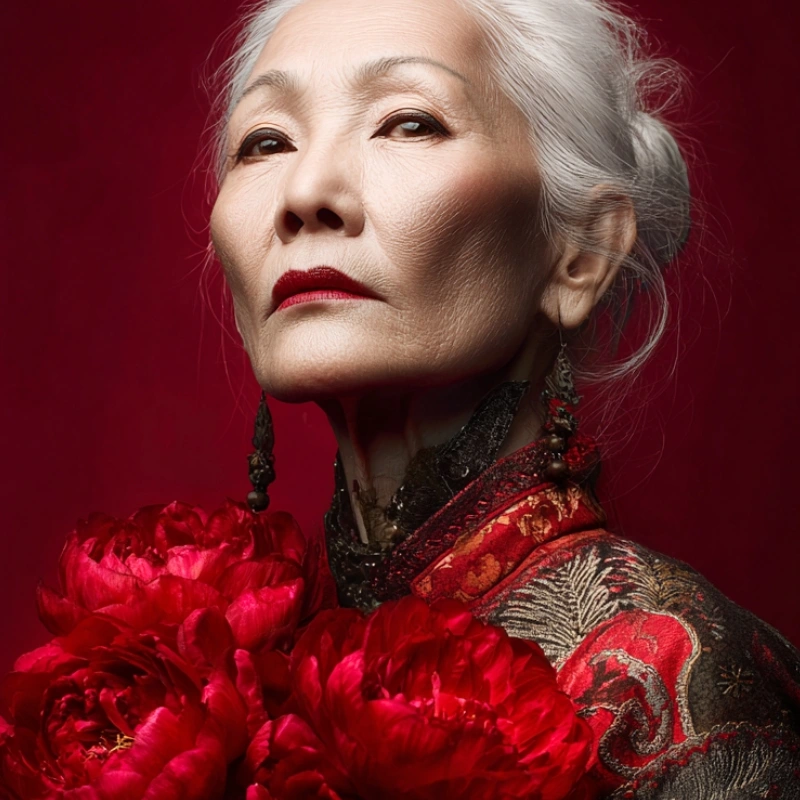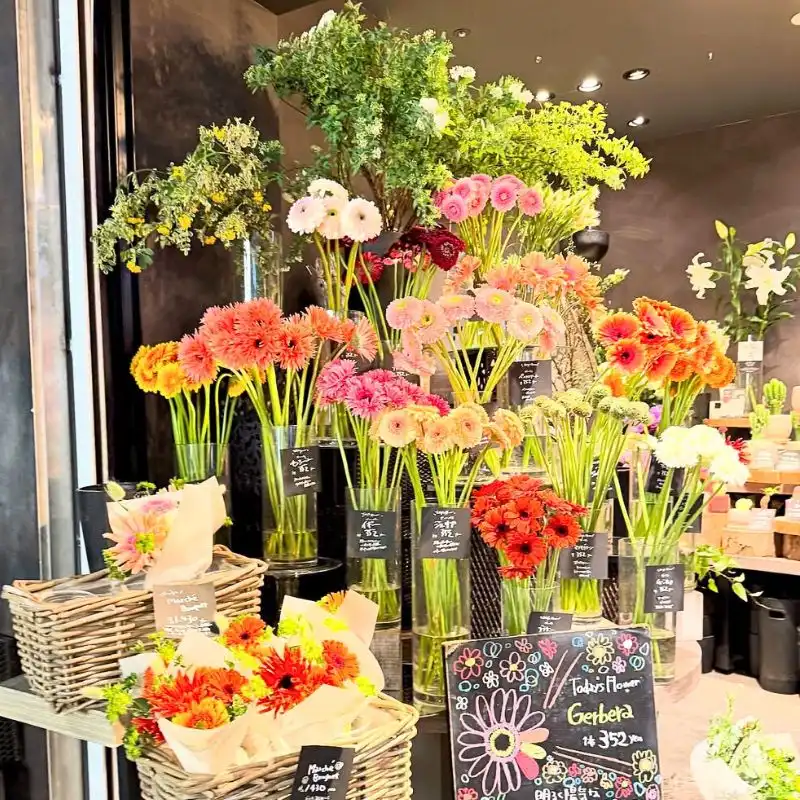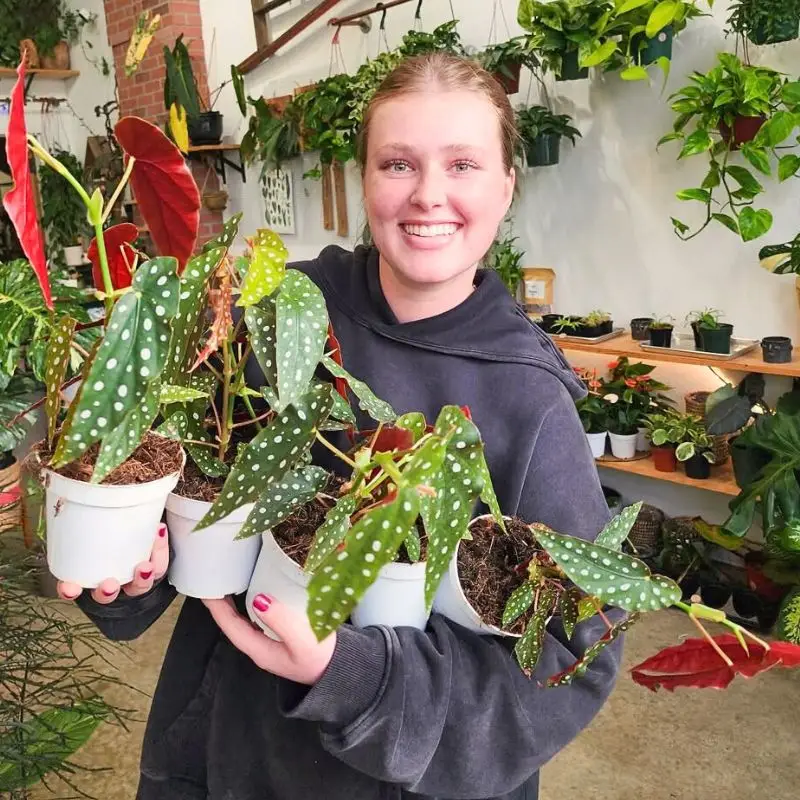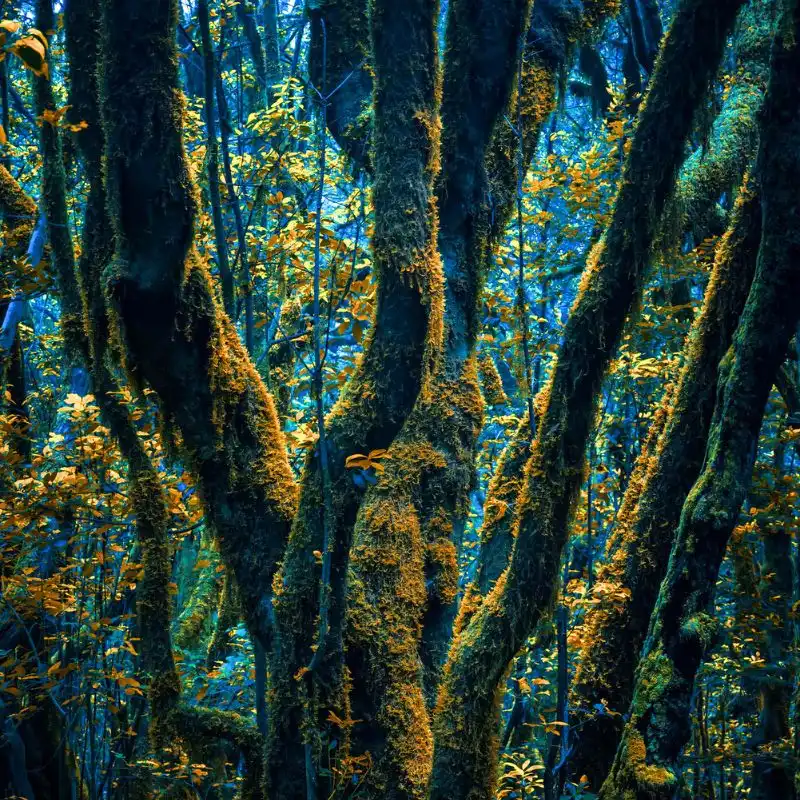When you discover Craig Burrows‘ photos of flowers and plants, you are definitely not the only one thinking these must come from another world. In his photography realm, flowers, plants, and leaves go into a state of fluorescence, and this is probably the coolest pics you'll see in your week. Flowers have so many ways and artistic channels of being shown to the world, and today, it's all about photography.
Graig Burrows' Ultraviolet Induced Visible Fluorescence
Craig Burrows takes photos using a relatively unknown process called ultraviolet-induced visible fluorescence. It’s done by using high-intensity UV lights to illuminate the flowers, which look like something beyond compare. Quite different than how we know them.
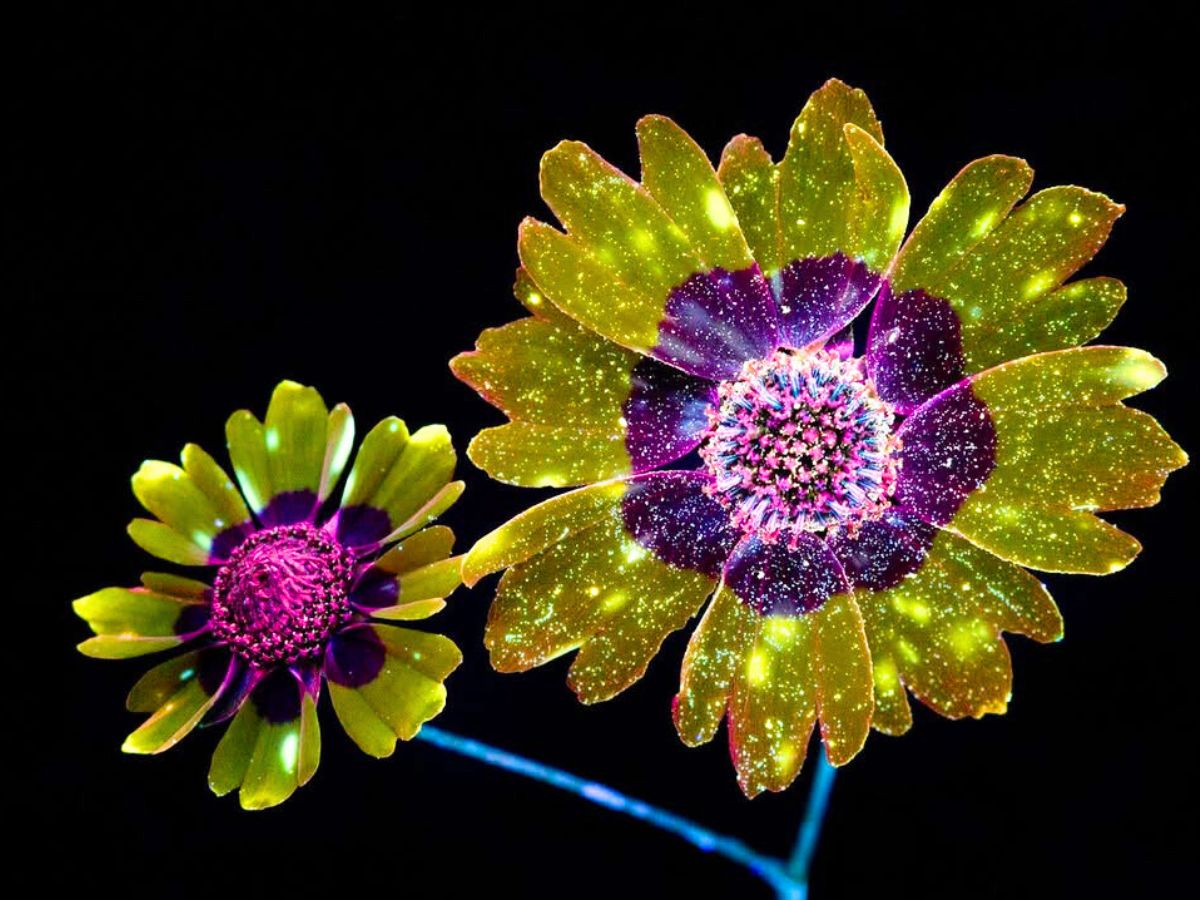
One of the things about ultraviolet-induced visible fluorescence that Craig points out as particularly cool is that when exposed to sunlight, flowers, plants, and leaves are all fluorescent. Normally, people can’t see that directly because the photos are overwhelmed by the intensity of the reflected visible light.
It’s important to point out that this technique requires only UV light to pass and illuminate the flowers. Also, Craig notes that for his work to have the best outcome when it comes to colors and details, it’s important to work in an environment that is as dark as possible.
Every step of a shoot starts with collecting the subject, staging it, cleaning man-made dust from it, composing the shot, and at last taking the photo
An Artist That is Self-Taught, Sharing His Love for Flowers, Plants, and Photography
Amazingly, Craig is completely self-taught, having come from an academic background mainly in physics and being co-owner of a small manufacturing business where he often picks up a camera to take product photos for sales and marketing purposes. Craig Burrows has a very clear objective about his idea behind every picture.
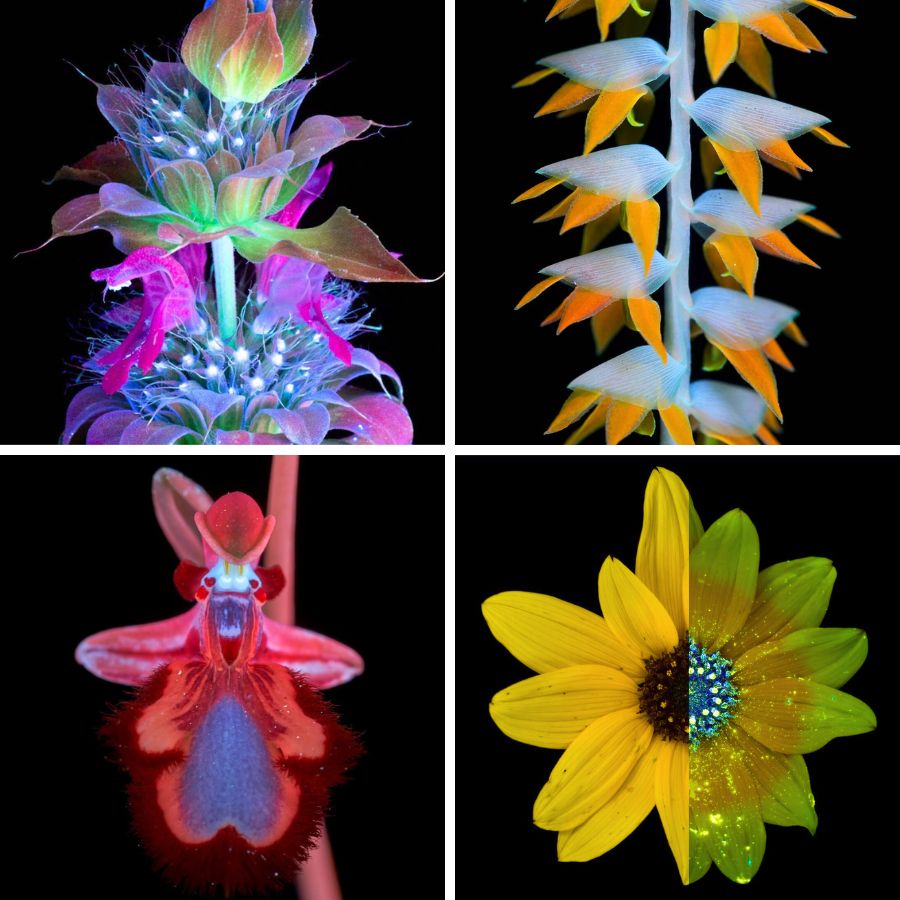
He has quite a few now, though he didn't start out with them. When he started, he just thought it was a really beautiful technique, creating otherworldly, unique images he hadn't seen before.
Craig first came across this kind of photography done by a photographer named Oleksandr Holovachov, who shared:
"There are flowers that are both UV-dark and are not fluorescent. There are also flowers that are fluorescing much brighter when they are already pollinated and their petals are drying out and dying. There are plants whose fruits fluoresce brighter than their flowers. The nature of fluorescence is much more complex than it may appear at first glance. Moreover, this biological phenomenon is an incredibly beautiful and interesting photographic subject."
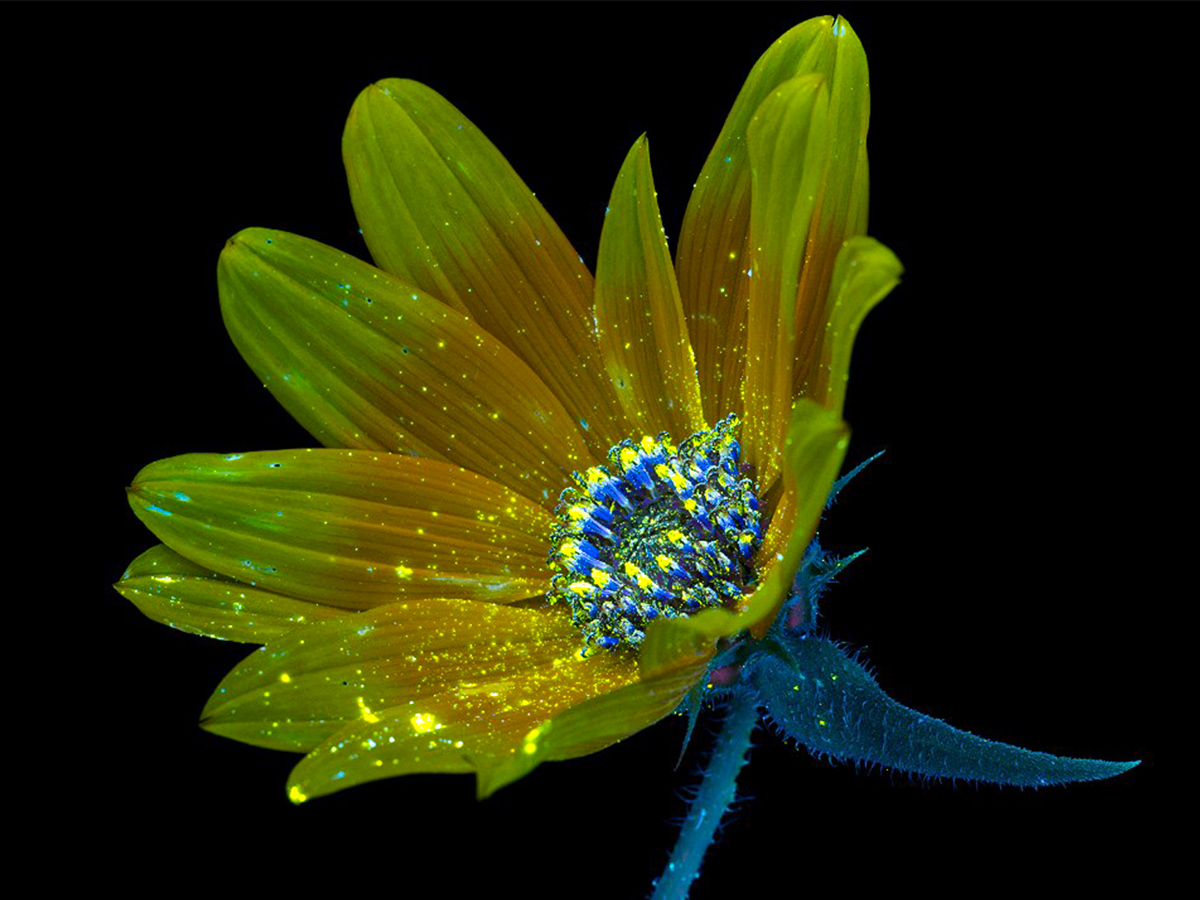
Developed an Interest in Plants
Over time, Craig came to develop an interest in the plants he photographed. He did research on species names, locations, ecological roles, etc. His own passion for plants developed as a result of photography, and something he hopes does for others as well.
Over time, his work evolved into a deliberate exploration of how flowers react under ultraviolet light, revealing patterns, colors, and glows invisible to the human eye in normal daylight. These images are not digitally manipulated to create their vivid appearance; instead, they rely on a precise photographic technique that records the fluorescence emitted by the plant itself.
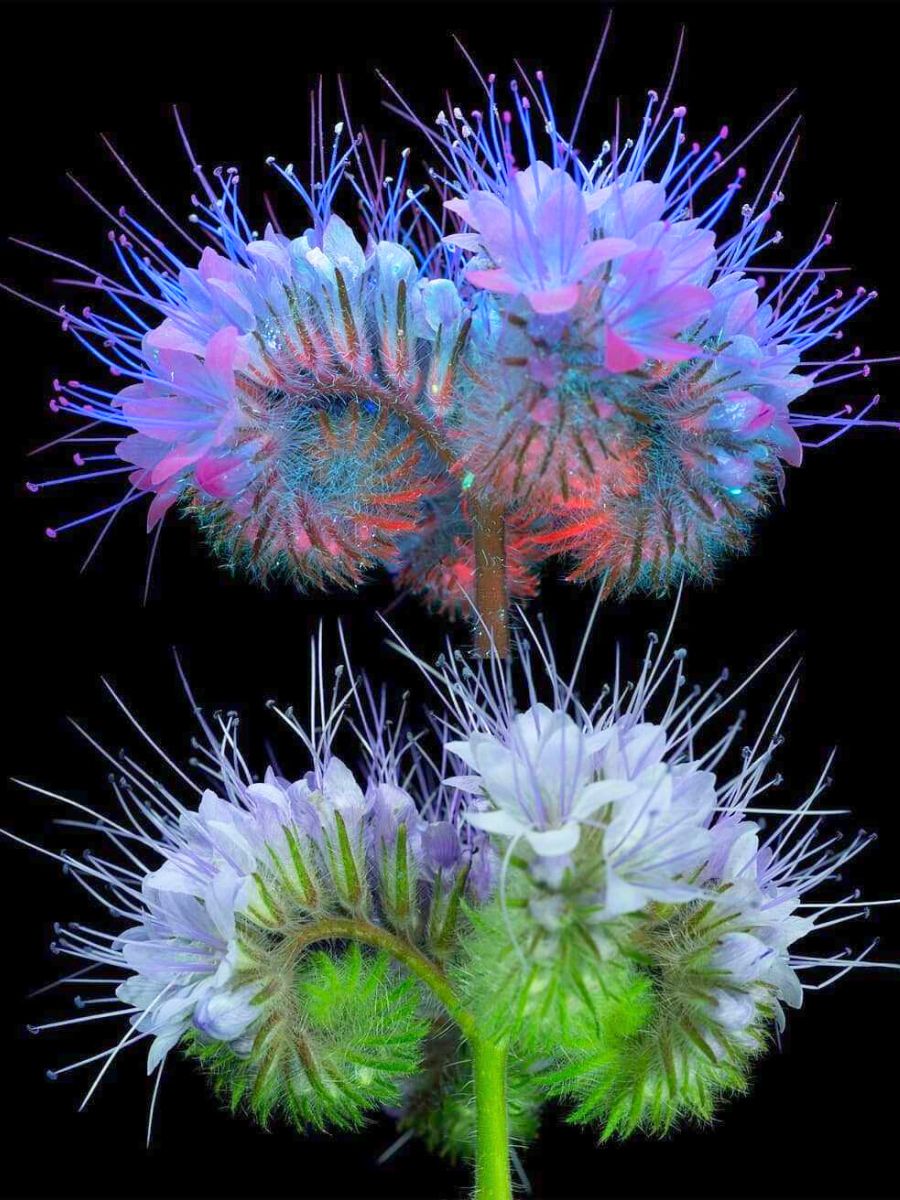
The result is a transformation of ordinary flowers into luminous subjects, appearing as though they belong to a realm far beyond everyday perception. By documenting this phenomenon, Burrows not only creates captivating visual art but also underscores the hidden complexity and beauty of natural processes, making his work an intersection of scientific curiosity and artistic expression.
Details of a beautiful fluorescent dandelion
"Most modern people seem to have a blindness to plants, taking them for granted as pretty objects without having a concern for what they do, where they come from, and which are meant to be there and which came from across the world. Our world's health is threatened not just by climate change, but by habitat destruction, which is truly enabled by a lack of awareness of what was supposed to be here before man, and why we should try to keep as much of the native ecology intact as we can. Plant blindness enables this to happen quite easily."
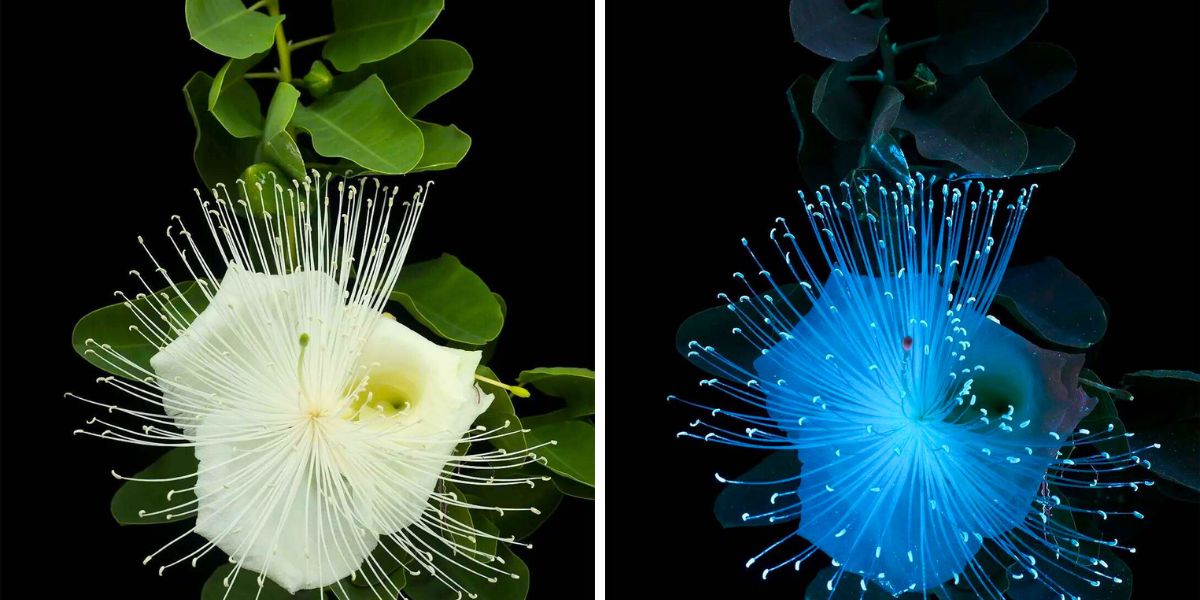
Craig explains that what he does also has a basis in scientific principles; he wants it to. He wants his work to be manifested through science.
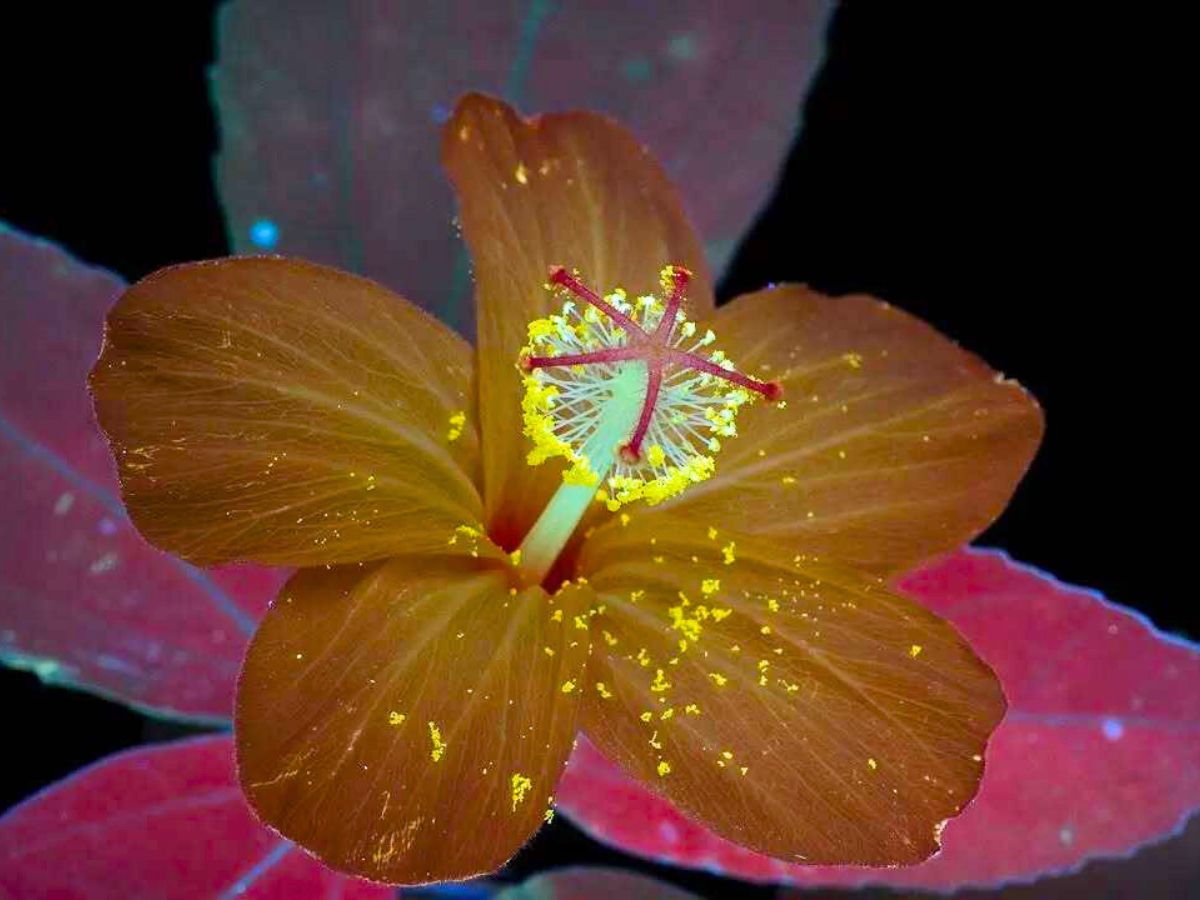
About Craig Burrows
Craig Burrows is based in Southern California. He’s been practicing photography since 2010, teaching himself through a combination of practice, online resources, and an academic background including physics. With respect to his portfolio, he calls himself an 'eclectic photographer'. If you’d like to see some more of Craig’s work, you can check out his website and follow him on Instagram.

